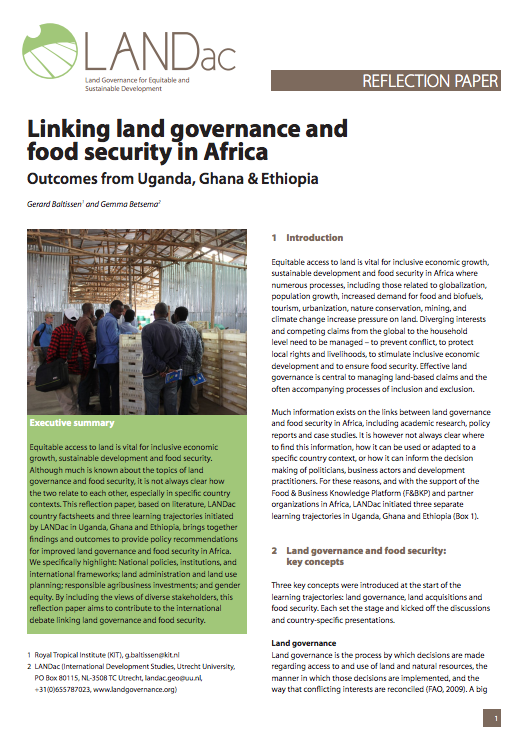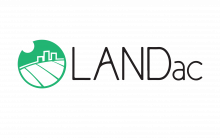Resource information
As part of a F&BKP knowledge agenda on land governance and food security, LANDac organisedthree country-specific learning trajectories on land governance and food security in Uganda, Ghana and Ethiopia. This reflection paper brings together the main findings and outcomes to provide policy recommendations for improved land governance and food security in Africa.
The three events, held in 2015, focused on topics of land governance and food security and the linkages between the two in the different countries. The learning trajectories, organized jointly with partner organizations, each drew between 20 and 25 professionals who currently work on issues of land governance and food security in their home countries. Participants were from academia, NGOs, multi-lateral organizations, national and local governments, farmers’ organizations, the Netherlands Embassy and the private sector.
Through joint study, exchange and discussion on the complex linkages between land governance and food security, as well as presentations given by local experts, by field visits to land-based investments and local government offices, and by developing action plans for their respective organizations, the four-day learning and exchange events provided participants and their organizations with knowledge and tools to better deal with issues of land governance and food security.
The reflection paper introduces a number of key concepts, highlights main outcomes and cases from the three events, and provides policy recommendations based on the findings.
To link land governance and food security, we present four areas of focus:
- Policies on land governance and food security, including international frameworks and processes;
- The role of land administration and land use planning;
- Responsible agri-business investments and impacts on food security;
- The role of gender in equitable access to land and improved food security.
Recommendations centre on creating better linkages between policies and actions that aim to improve land governance and food security. One example is to establish stronger connections between land administration and land use planning for local food security. By realizing that land administration does not automatically lead to enhanced land tenure security or improved food security, attention should be given to fit-for-purpose land administration practices which take into account local contexts and consider the outcomes, especially for vulnerable groups. Businesses can also play a role by taking into account the local food security impacts of their investments and including mechanisms to enhance food security in CSR strategies. In all of this, women’s participation and ownership, access to and use of land are crucial for positive and sustainable outcomes in terms of food security.



